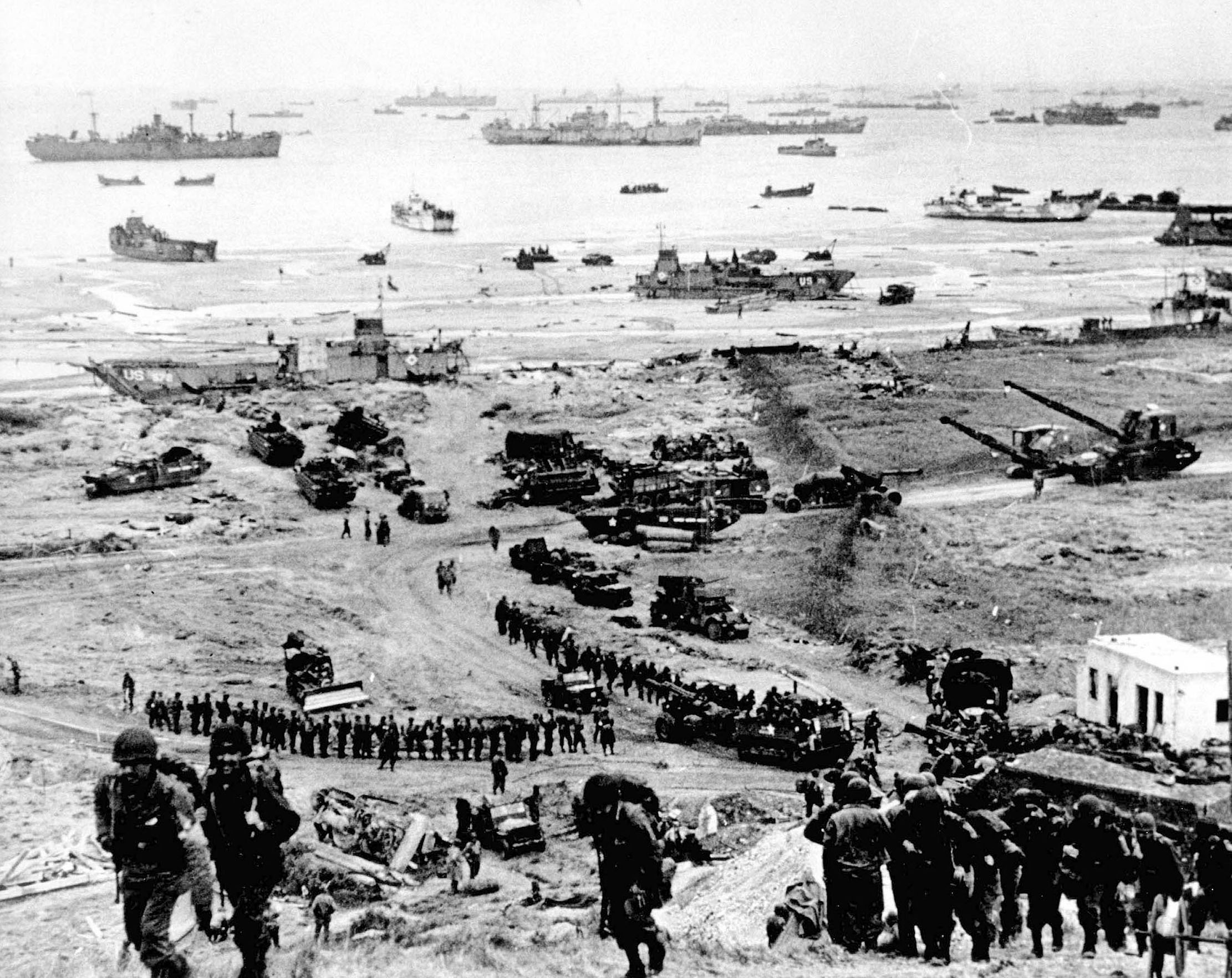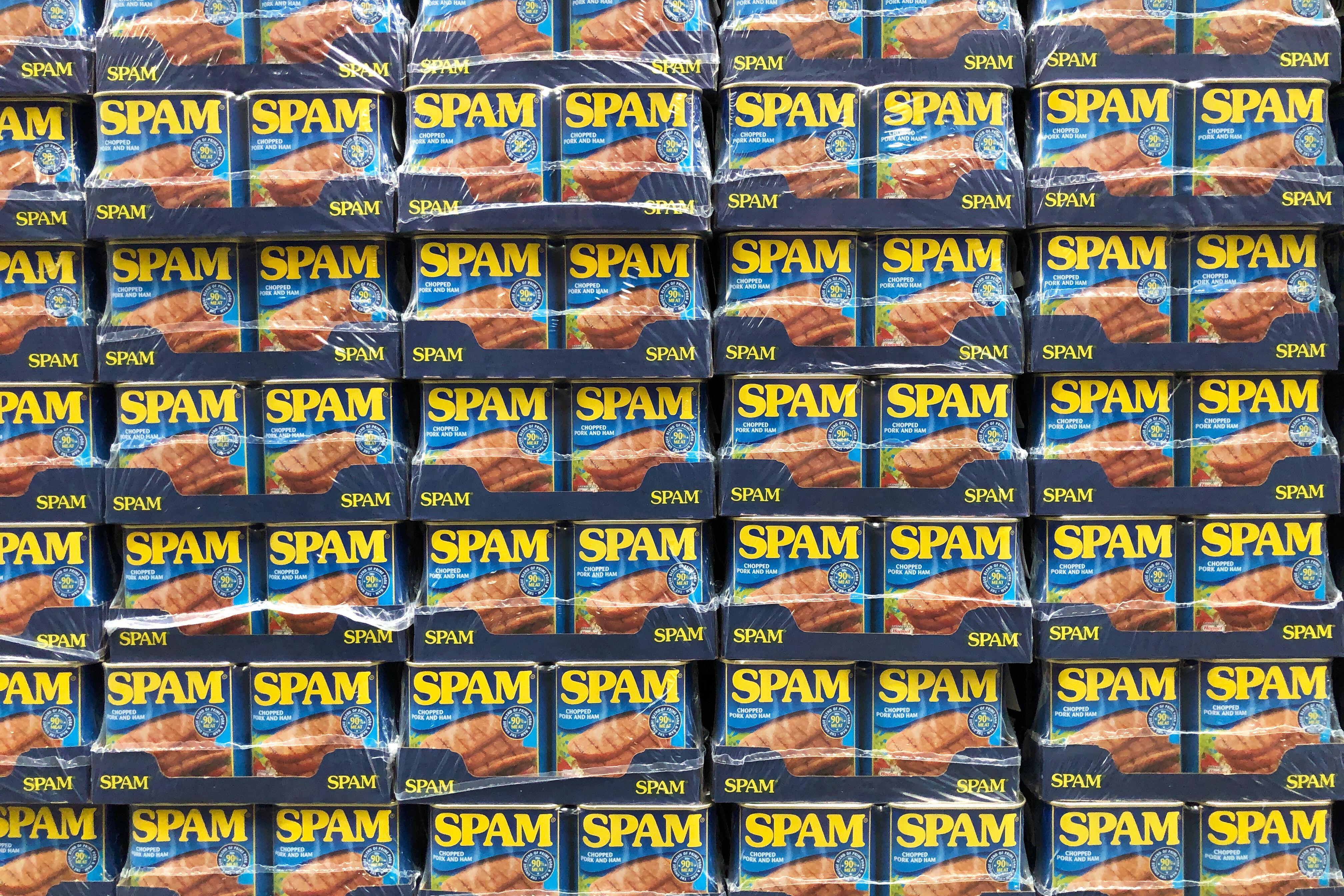'By the time I wanted to know about the war that had swept over the world and redefined lives, I’d left it too late for first-hand accounts'
Carla Carlisle reflects on the 80th anniversary of D-Day and its legacy of gratitude and awe.


An early-morning email from my friend David, who lives in a wooded hamlet in the Catskills. ‘Poured myself a glass of good red wine. Turned the lights down and the volume up, and listened to Leonard Bernstein conducting Aaron Copland’s Fanfare for the Common Man. A fitting end to Memorial Day.’
I’d forgotten it was Memorial Day in America. The May bank holiday in England, traditionally Whit Monday, marks the day after Pentecost, rather than commemorating the war dead of the country’s wars. My lasting memory of the American holiday was of Old Man Piggott, who dressed in a First World War uniform every Armistice and Memorial Day and sat in silence in front of the courthouse all day long. Some folks said he wasn’t entitled to wear the uniform, that he’d bought it at the army surplus store, but my grandfather always addressed him as Mister Piggott and, in a soft voice, he told me the old soldier was ‘shell-shocked’.
By the time I knew what shell-shocked meant, my war was Vietnam and I was antiwar. My father had fought in the Second World War, but he rarely spoke about it and I never asked. By the time I wanted to know about the war that had swept over the world and redefined lives, I’d left it too late for first-hand accounts.
I did have a secret world of war, however. When I was nine years old, I discovered a box of letters nestled in the cedar chest where old quilts and blankets were stored. Because I was often in trouble for ‘meddling’, I read in secret. Two fat bundles tied in black ribbon, they were written on paper so thin I could see through it. These were letters written to my mother by her first husband. The letters end at the beginning of 1945. He was killed in the Battle of the Bulge, a month before his daughter, my half-sister, was born.
"The best way to honour the past is to be ready for what comes next"
What I remember of those letters are the drawings. As head designer at Studebaker cars before the war, he had been a skilled draughtsman and his letters contained sketches of his fellow soldiers, of ‘chow time’, piles of equipment, trucks and army boots. He also drew cartoons of his young wife in various stages of pregnancy. In these drawings, she was always barefoot and adorable.
Although it took place long before I was born, I did know about Pearl Harbor. Grownups still talked about where they were — driving back from a dance in Memphis, bird hunting in the Delta — when they heard the news. Years later, 9/11 would be our Pearl Harbor. The shock of it and the death toll was similar: on the ‘day of infamy’ in December 1941, more than 2,400 were killed. On the September day in 2001, 2,977 died — 19 more if you include the hijackers, which I find hard to do.
This June 6 is the 80th anniversary of D-Day. Perhaps because we are once again living in a ‘world knocked down’, with a war in Europe, I started early, listening to D-Day: The Last Voices each morning on Radio 4. One evening, I watched The Unheard Tapes on BBC Two. And then I remembered a programme from the 65th anniversary, with a boyish Richard Hammond explaining how so many things went wrong with the invasion of the American troops on Omaha Beach, where 2,400 men, of the 34,000 who landed, died or were wounded or went missing. I found it on YouTube and watched it again.
Sign up for the Country Life Newsletter
Exquisite houses, the beauty of Nature, and how to get the most from your life, straight to your inbox.
I then found my battered copy of the collected works of A. J. Liebling, the ironic and perceptive writer who wrote for The New Yorker and who arrived in Normandy on D-Day on LCI(L)-88 (Landing Craft, Infantry, Large). Overweight, myopic and with bad feet, he’d pulled some strings to get on the ship — the skipper was Lt Henry ‘Bunny’ Rigg, who, before the war, was rowing and boating correspondent on The New Yorker. Liebling’s account of D-Day doesn’t provide a coherent idea of that day (nor does Saving Private Ryan), but he focused on what he could see and hear. He did have a point of view: he loved France and Normandy, he spoke fluent French and he saw the Second World War as a campaign to free France. He called his account of his D-Day — with slender irony — Cross-Channel Trip.
Where does my week-long immersion course in D-Day leave me? I wish I could end in light-heartedness. After all, D-Day was the beginning of the end of that war. But I write this with a shaky hand and a trembling heart. What does it say when today’s Ministry of Defence admits it has to cut back on the parachute jump, where hundreds of paratroopers were due to parachute into Normandy on June 5, because it has only one aircraft available?
The dismal history of recent wars — Iraq, Afghanistan — have made the UK and the US look worryingly weak and unfit, but Ukraine, now in its third year, is surely an alarm call. Most days, I find it hard to look the two Ukrainian women who work at Wyken in the face as Russia grows ever more aggressive and takes more territory. America has come to the rescue in Europe in the past, but, if Trump becomes the next president, he has made it all too clear that Europe is on its own. I am an old dove, but I believe this is not the moment for candidates to be competing for tax cuts. It is the time to look at what’s going on in the world and prepare for it.
This is the 80th anniversary of the beginning of the end of that terrible war. It is now ‘history’ and its legacy is gratitude and awe. Liebling also wrote: ‘I am fond of anniversaries, although I don’t believe in letting them get the better of me.’ I tend to agree with Liebling, but I reckon that the best way to honour the past is to be ready for what comes next.
-
 'To exist in this world relies on the hands of others': Roger Powell and modern British bookbinding
'To exist in this world relies on the hands of others': Roger Powell and modern British bookbindingAn exhibition on the legendary bookbinder Roger Powell reveals not only his great skill, but serves to reconnect us with the joy, power and importance of real craftsmanship.
By Hussein Kesvani
-
 Spam: The tinned meaty treat that brought a taste of the ‘hot-dog life of Hollywood’ to war-weary Britain
Spam: The tinned meaty treat that brought a taste of the ‘hot-dog life of Hollywood’ to war-weary BritainCourtesy of our ‘special relationship’ with the US, Spam was a culinary phenomenon, says Mary Greene. So much so that in 1944, London’s Simpson’s, renowned for its roast beef, was offering creamed Spam casserole instead.
By Country Life